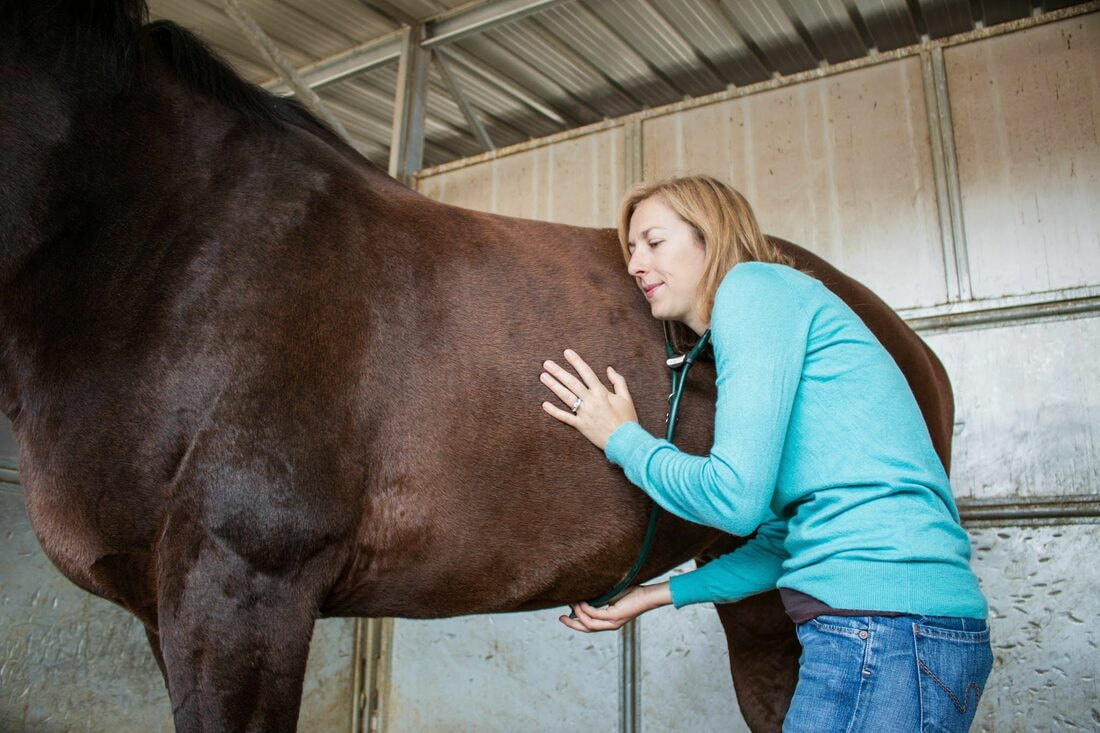You asked, we listened! A document summarizing this information in Spanish has been created.
What is equine coronavirus (ECoV)?The ECoV is a species-specific member of the coronavirus family, once a horse ingests ECoV, the virus appears to travel to the small intestine, where it attaches to specific receptors on intestinal cells.From there, the virus particle fuses with the host’s cell and replicates. Loss of epithelial cells results in malabsorption and maldigestion of nutrients and acute diarrhea. TransmissionCoronavirus is spread when feces from an infected horse is ingested by another horse (fecal-oral transmission). The virus can also be transmitted when horses make oral contact with surfaces or objects that are contaminated with infected feces. Stalls, muck forks, manure spreaders, thermometers, hands, and clothing are common fomites (objects or materials that carry infection). Coronavirus is most commonly diagnosed in the winter months. The incubation period is 2-4 days and infected horses can shed ECoV up to 14 days. DiagnosisDiagnosis is made by a veterinarian submitting samples for PCR (polymerase chain reaction) tests of a fecal sample. Prognosis & TreatmentHorses that do develop clinical signs most often respond to basic supportive care, usually involving fluids and non-steroidal anti-inflammatory drugs (NSAIDs) such as phenylbutazone or flunixin meglumine. It’s uncommon for horses to die from the disease. General Biosecurity TipsAny horse with a fever and no evidence of respiratory illness may have ECoV and feces may be infected.
3% chlorine bleach solution formula: Add 3 gallons of bleach to 2 gallons of water, mix thoroughly. Please feel free to contact the Starwood Equine office with any questions or concerns (650) 275-3091 | [email protected] ReferencesFielding C.L. et al. 2015. Disease associated with equine coronavirus infection and high case fatality rate. J Vet Intern Med. Vol 29. Pp 307-310.
Giannitti F. et al. 2015. Necrotizing enteritis and hyperammonemic encephalopathy associated with equine coronavirus infection in equids. Veterinary Pathology. Vol 52(6). Pp1148-1156. Goodrich E. L. et al. 2018. Novel findings from a beta coronavirus outbreak on an American Miniature Horse breeding farm in upstate New York. Equine Veterinary Journal. Vol 12938. Pp 1-5. Kooijman L.J. et al. 2017. Seroprevalence and risk factors for infection with equine coronavirus in healthy horses in the USA. The Veterinary Journal. Vol 220. Pp 91-94. Pusterla N et al. 2018. Enteric Coronavirus infection in adult horses. The Veterinary Journal. Vol 231. Pp 13-18. Pusterla N et al. 2015. Prevalence of equine coronavirus in nasal secretions from horses with fever and upper respiratory tract infection. Veterinary Record. Sept 19.
0 Comments
|
Topics
All
Archives
May 2021
|
||||||||||||||||||
Privacy Policy | Copyright © 2019 Starwood Equine Veterinary Services, Inc. All rights reserved.


 RSS Feed
RSS Feed